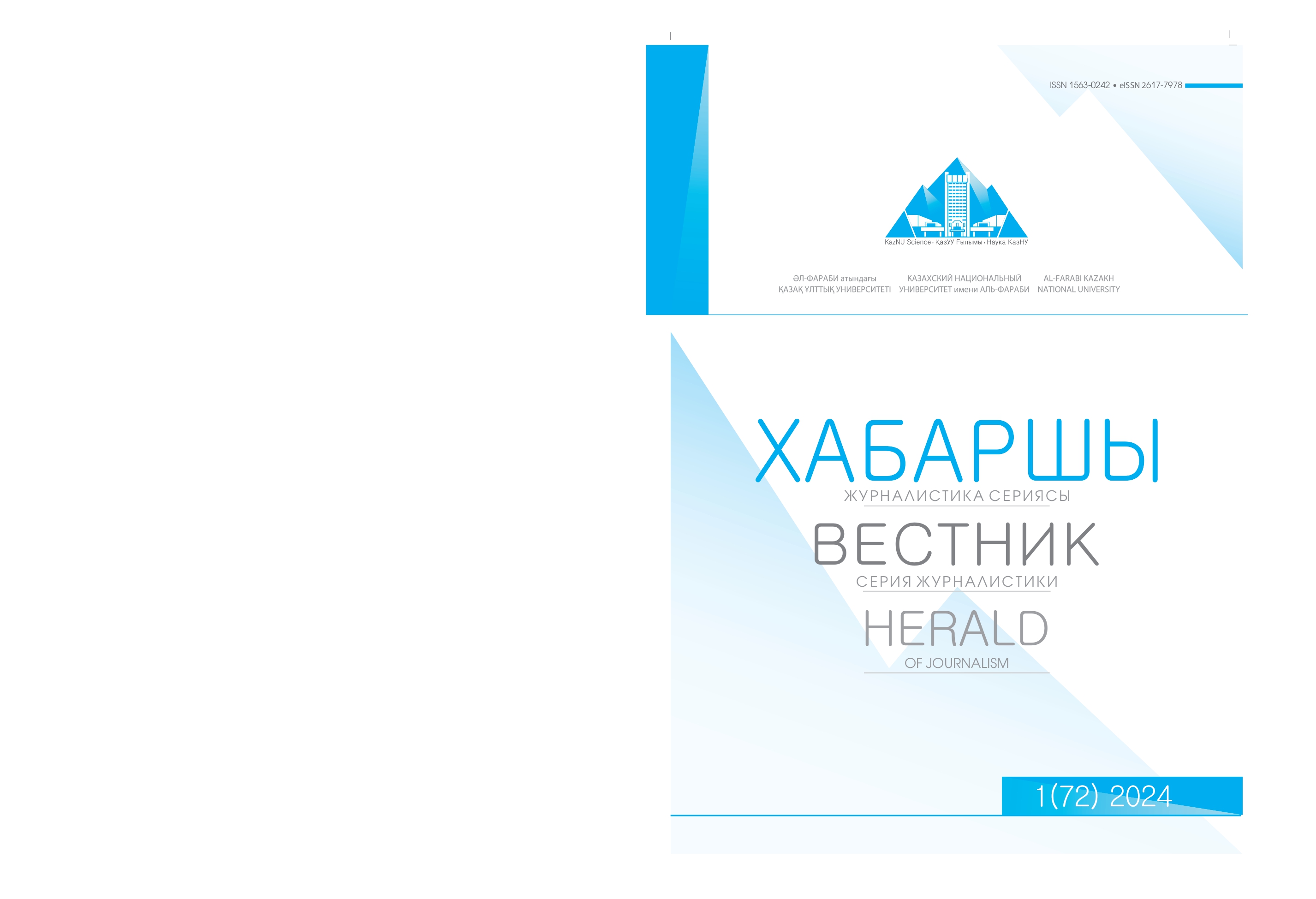Dissemination of fake and incorrect information on social networks
DOI:
https://doi.org/10.26577/HJ.2024.v72.i2.3Keywords:
fake, social network, social media platform, disinformation, multimedia, information society.Abstract
The article discusses disseminating fake and inaccurate information on various social media platforms. The authors examine the emergence and evolution of the term "fake". In recent years, there has been a shift in content consumption on social media and an expansion of audience participation in its production and dissemination. The research aims to identify verification algorithms and sociometric indicators of fake and inaccurate information by analyzing sources of their dissemination and assessing their impact on society.
The scientific novelty and significance of the work are not just theoretical, but also have practical implications. The study focuses on dealing with inaccurate information on popular social media platforms in Kazakhstan, such as Facebook, Instagram, and TikTok. The inclusion of misinformation and fakes in the political, economic, and social agenda underscores the relevance of research in this area. The work's practical significance lies in its potential use for training media trainers, media representatives working in fact-checking systems and journalism students. This application of the research can empower these individuals to combat fake news effectively.
The conclusion highlights that the development of electronic technologies and the emergence of new media platforms have not only led to new strategies for creating and delivering content , but also to the dissemination of inaccurate information. This has fundamentally changed the tactics of information consumption, with the audience now playing a crucial role in content production and dissemination. This realization should make us all more aware of our responsibility in sharing accurate information.
Kazakhstanis are subjected to attacks of blatant lies and disinformation, as well as fabricated or semi-true news on popular platforms, which can spread widely in the digital age with immeasurable consequences. The obtained results show that evaluating sources and verifying news content minimizes the impact of fake news and mitigates its influence. The research findings can be used to improve the level of information literacy among the population of Kazakhstan.













